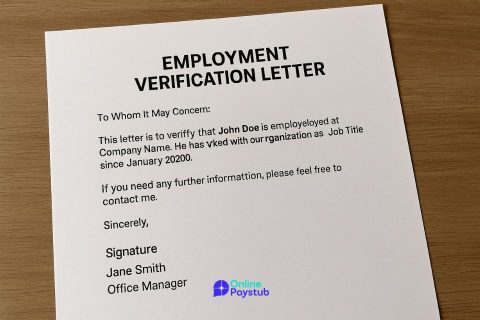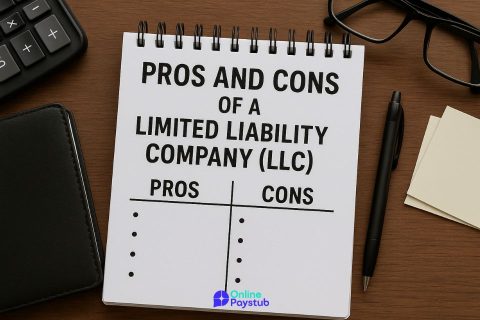Summary
An LLC operating agreement is a legal document outlining an LLC’s ownership, management, profit distribution, and decision-making procedures. While not always required by law, it protects members’ rights, clarifies roles, and helps avoid disputes. Key components include voting rights, capital contributions, dissolution terms, and member duties. It also reinforces limited liability and can override default state laws. The agreement should be clear, legally compliant, and updated as the business evolves. Though not filed with the state in most cases, it’s essential for internal governance and legal protection.
An LLC operating agreement is a formal legal document that outlines the ownership structure, operating procedures, and management responsibilities within a limited liability company (LLC). Although not always legally required, it serves as the internal rulebook for the company’s operations.
An operating agreement clearly defines the rights and duties of the members, details how profits and losses are distributed, and sets procedures for important company decisions. Once signed by all members, it becomes a binding contract that governs the LLC’s daily business practices and dispute resolutions.
Without an operating agreement, an LLC defaults to the state’s generic LLC laws, which may not be suited to the company’s specific needs or the interests of its members.
Understanding the Purpose of an LLC Operating Agreement
The primary purpose of an LLC operating agreement is to provide clarity, structure, and legal protection for the company and its members. It accomplishes several critical functions:
- Clarifies Ownership and Management Structure: Defines who owns what percentage of the business and how decisions are made.
- Protects Limited Liability Status: Helps reinforce the legal separation between the business and its owners, safeguarding personal assets.
- Prevents Internal Disputes: Establishes clear rules and guidelines, reducing the risk of misunderstandings among members.
- Customizes the Business Framework: Allows the LLC to operate under terms that best suit the company, rather than relying solely on default state laws.
- Outlines Succession Planning: Provides a roadmap for how ownership interests are handled if a member leaves, retires, or passes away.
By setting expectations from the start, an operating agreement serves as a foundational document for smooth business operations and long-term success.
Key Elements Included in an Operating Agreement
A well-drafted operating agreement should cover a variety of essential topics to ensure comprehensive governance of the LLC. Common elements include:
- Member Ownership Interests: Specifies each member’s percentage of ownership in the company.
- Management Structure: Details whether the LLC will be member-managed or manager-managed, and outlines the authority of each.
- Voting Rights and Procedures: Defines how votes are cast and the percentage needed to approve different types of decisions.
- Capital Contributions: Lists each member’s initial investment and obligations for future funding if needed.
- Profit and Loss Allocation: Explains how profits and losses will be distributed among members.
- Meetings and Record-Keeping: Establishes protocols for holding meetings and maintaining important business records.
- Transfer of Membership Interests: Provides rules for selling, transferring, or inheriting ownership stakes.
- Dissolution Procedures: Describes the steps for winding down the company in the event of closure.
Including these key elements ensures the LLC has a clear operational blueprint and protects all parties involved.

How an Operating Agreement Defines Member Responsibilities
An LLC operating agreement clearly defines the specific responsibilities and expectations of each member. This not only promotes accountability but also minimizes potential conflicts. Typical areas covered include:
- Day-to-Day Roles: Outlines each member’s operational duties, such as financial management, sales, marketing, or customer relations.
- Decision-Making Authority: Identifies which decisions require member votes versus those that can be made independently.
- Contribution Requirements: States any ongoing obligations members have regarding financial support, labor, or expertise.
- Standards of Conduct: Establishes expectations for professionalism, ethical behavior, and confidentiality.
- Consequences for Breach: Specifies penalties or remedies if a member fails to fulfill their duties or violates the agreement.
By clearly setting these expectations upfront, an operating agreement helps maintain trust and collaboration among members, ensuring smoother business operations.
Ownership Interests and Profit Distribution Explained
One of the core functions of an LLC operating agreement is to clearly define each member’s ownership percentage and explain how profits and losses will be distributed.
- Ownership Interests: Typically expressed as a percentage, ownership stakes determine voting power, profit share, and financial responsibilities. Members’ initial capital contributions often influence their ownership percentages, but ownership can also be based on other negotiated terms.
- Profit Distribution: The agreement outlines how profits (and losses) are allocated among members. This distribution does not have to match ownership percentages unless otherwise agreed. For instance, a member who owns 40% could still be entitled to 50% of profits if stated in the agreement.
Clearly defining these elements prevents future disputes and ensures everyone understands their financial stake in the company.
Why Every LLC Needs an Operating Agreement
While an operating agreement is not always legally required, every LLC—whether single-member or multi-member—should have one in place. Here’s why:
- Clarifies Business Structure: Provides clear definitions for management roles, voting rights, and ownership shares.
- Strengthens Limited Liability Protection: Reinforces the separation between personal and business assets, protecting members from personal liability.
- Reduces Internal Disputes: Prevents misunderstandings by establishing agreed-upon rules and procedures from the start.
- Overrides Default State Rules: Without an agreement, your LLC may be subject to generic state laws that might not suit your business needs.
- Enhances Credibility: Demonstrates professionalism and organizational stability to banks, investors, and partners.
An operating agreement is a proactive measure to protect your business and its members as the company grows.
How to Draft a Legally Compliant LLC Operating Agreement
Creating a legally compliant LLC operating agreement requires careful planning and attention to detail. Key steps include:
- Understand State Requirements: Check if your state mandates specific provisions or filing requirements for operating agreements.
- Identify Core Information: Include member names, ownership percentages, management structure, and capital contributions.
- Define Operating Rules: Detail voting procedures, profit distribution, member duties, dispute resolution processes, and dissolution terms.
- Include Important Clauses: Cover buyout rights, succession planning, tax election options, and fiduciary duties.
- Use Clear, Precise Language: Avoid ambiguity to minimize the risk of future disputes.
- Consult Legal Counsel: Have an attorney review the agreement to ensure compliance with applicable laws and best practices.
Following these steps helps ensure the agreement is enforceable and accurately reflects the members’ intentions.
Can You Amend an LLC Operating Agreement After Formation?
Yes, LLC operating agreements can be amended after formation. In fact, regular updates are often necessary as the business evolves.
- Amendment Procedures: Your original agreement should outline how amendments are made, typically requiring a majority or unanimous vote by members.
- Common Reasons for Amendments: Changes in ownership, profit distribution, management structure, or the addition of new members.
- Documentation: Amendments should be written, signed by all relevant parties, and kept with the original operating agreement for record-keeping.
Keeping your operating agreement up to date ensures that it continues to reflect the current realities and goals of your business.
Managing Decision-Making and Voting Rights in the Operating Agreement
An LLC operating agreement should carefully outline how decisions are made and how voting rights are allocated among members.
- Decision-Making Structure: Defines which decisions require a simple majority, supermajority, or unanimous consent.
- Voting Rights: Usually proportional to ownership interest but can be customized based on the members’ agreement.
- Types of Decisions: Routine operational choices might be handled by managers, while major decisions—such as mergers, dissolutions, or amendments—often require member votes.
Clearly establishing these processes maintains fairness and streamlines company governance.
Protecting Personal Liability Through a Solid Operating Agreement
One of the most significant benefits of an LLC structure is limiting personal liability. A robust operating agreement enhances this protection by:
- Separating Personal and Business Finances: Clarifies that the LLC operates independently of its members.
- Demonstrating Corporate Formalities: Shows that the LLC follows structured governance, strengthening liability shields.
- Establishing Dispute Resolution: Reduces the risk of internal conflicts escalating into personal liability claims.
- Supporting Legal Compliance: Reinforces adherence to state requirements and best practices.
Without a well-drafted operating agreement, courts may be more likely to “pierce the corporate veil,” exposing members to personal liability.
Operating Agreement Requirements by State
Operating agreement requirements vary by state. Here’s a general overview:
- Mandatory States: States like California, Missouri, and New York require LLCs to have written operating agreements, even for single-member LLCs.
- Optional States: Most states do not legally require an operating agreement but strongly recommend one.
- Internal Document: In nearly all states, the operating agreement does not need to be filed publicly but should be maintained internally.
- Customization Encouraged: Even where operating agreements are optional, businesses are encouraged to create customized agreements to avoid default rules.
Always check your state’s specific requirements to ensure compliance and avoid potential legal issues.




No comments to show.